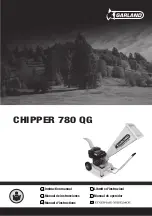
6
CONTENTS
CHAPTER 1 COMPONENT AND FUNCTION
1. Construction and Function of Major Components
1.1
Evaporator
9
1.2
Absorber
9
1.3
High Pressure Generator
9
1.4
Low Pressure Generator
9
1.5
Condenser
10
1.6
Solution Heat Exchangers
10
1.7
Purging System
10
1.8
Pumps
10
1.8.1 Solution pump, refrigerant pump
10
1.8.2 Purge pump (vacuum pump)
10
2. Cooling and Heating Cycle
14
2.1 Cooling Cycle
14
2.2 Heating Cycle
15
3. Capacity Control and Protective Devices
17
3.1 Chilled Water Temperature Control
17
3.2 Hot Water Temperature Control
17
3.3 Solution Flow Rate Control
18
3.4 Low Load Control
19
3.5 Emergency Stop
19
3.6 Protective Devices
19
CHAPTER 2 PREPARATION AND OPERATION
4. Preparation for Operation
24
4.1 Evacuation
24
4.2 Charging of Solution, Refrigerant and Alcohol
24
4.3 Checking of Rotation Direction of each Motor
26
5. Operation Procedure
27
5.1 Cautions During Initial Period of Operation
27
5.2 Preparation for Start
up
28
5.3 Adjustment Procedure for Operation
29
5.3.1 Outline of solution flow
29
5.3.2 Adjustment procedure for solution flow rate
30
5.4 Cooling Operation
36
5.4.1 Star
up
36
5.4.2 Stoppage
36
5.5 Heating Operation
38
5.5.1 Start
up
38
5.5.2 Stoppage
39
5.6 Changeover between Cooling and Heating Cycle
39
Summary of Contents for HDFN-80-1400
Page 11: ...11 Fig 1 1 External View of Chiller heater...
Page 16: ...16...
Page 20: ...20 Fig 3 5 Operation Flow Chart...
Page 21: ...21...
Page 35: ...35...
Page 66: ...66 Fig 8 Lithium Bromide Temperature Specific Gravity Concentration Curve...
Page 67: ...67...







































